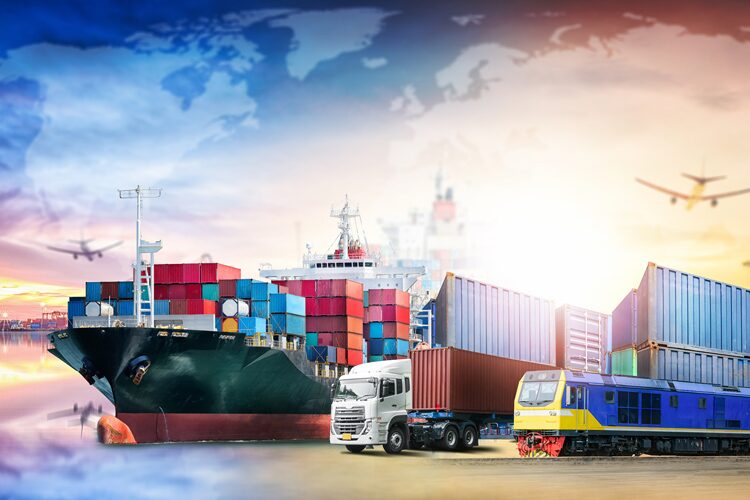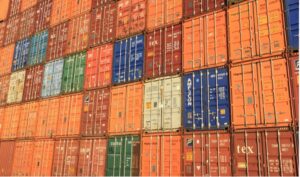Germany, a powerhouse of European manufacturing and a key consumer market, presents a lucrative opportunity for businesses shipping from China. Whether you’re a seasoned exporter or venturing into your first international shipment, navigating the complexities of China freight to Germany can feel daunting. This comprehensive guide empowers you to streamline the process, ensuring efficient and cost-effective cargo movement.
Understanding the Freight Shipping Process

The China-Germany freight journey involves several crucial stages:
- Pre-planning and Booking: Gather shipment details like cargo weight, dimensions, and desired delivery timeframe. Research and choose a reliable freight forwarder who can handle customs clearance and documentation in Germany. Booking your shipment in advance secures space, especially during peak seasons.
- Collection and Inland Transportation: Your chosen freight forwarder picks up your cargo from the origin in China. This may involve domestic trucking within China to consolidate shipments or reach the port city.
- Customs Clearance: Seamless customs clearance in Germany is vital to avoid delays and potential penalties. Ensure all necessary documentation is accurate and compliant with German import regulations.
- Ocean Freight: Your cargo embarks on its ocean voyage from a Chinese port to a German port like Hamburg or Bremerhaven. The freight forwarder handles all aspects of ocean transportation, including booking container space and managing bill of lading (BOL) issuance.
- Delivery and Post-Shipment Support: Upon arrival at the German port, customs clearance procedures are completed. Your cargo is then transported to the final destination within Germany, as per your incoterms agreement. The freight forwarder can also provide post-shipment support, such as cargo tracking and documentation management.
Types of Freight Shipping Methods

From China to Germany, you can choose from various shipping methods based on your cargo characteristics, budget, and urgency:
- Ocean Freight (FCL – Full Container Load): Ideal for large shipments that fill an entire container (20ft or 40ft). Offers a cost-effective solution for bulk cargo.
- Ocean Freight (LCL – Less Than Container Load): Suitable for smaller shipments that don’t require a full container. Your cargo is consolidated with other shipments to fill a container, offering a budget-friendly option for smaller consignments.
- Air Freight: The fastest option, ideal for time-sensitive cargo or perishables. However, air freight is significantly more expensive than ocean freight.
Additional Considerations:
- Door-to-Door vs. Port-to-Port: Door-to-door service includes inland transportation within China and Germany, while port-to-port only covers ocean freight. Choose based on your incoterms agreement and budget.
- Express vs. Economy: Express services offer faster transit times but come at a premium cost. Economy services are more economical but have longer lead times.
Choosing the Right Shipping Method for Your Needs

The optimal shipping method hinges on several factors:
- Cargo Weight and Volume: FCL is cost-effective for large shipments, while LCL is suitable for smaller consignments. Consider consolidation options for multiple small shipments.
- Delivery Time Requirements: Air freight is the fastest, but ocean freight offers a balance between cost and speed.
- Cargo Value and Fragility: High-value or fragile cargo may benefit from air freight or additional insurance coverage.
- Budget: Ocean freight is generally the most cost-effective option, while air freight is the most expensive.
Here’s a table summarizing the key considerations for choosing a shipping method:
| Factor | Ocean Freight (FCL) | Ocean Freight (LCL) | Air Freight |
|---|---|---|---|
| Ideal for | Large shipments filling a container | Smaller shipments | Time-sensitive or perishable cargo |
| Cost | Most cost-effective | Budget-friendly, but more expensive than FCL | Most expensive |
| Speed | Moderate | Moderate | Fastest |
Pro Tip: Consulting a reputable freight forwarder can help you select the most cost-effective and efficient shipping method for your specific needs.
Calculating Freight Shipping Costs

The total cost of shipping freight from China to Germany encompasses several components:
- Ocean/Air/Rail Freight: The base transportation cost determined by the chosen shipping method, shipment weight/volume, and origin/destination.
- Terminal Handling Charges (THCs): Fees levied by ports or airports for loading and unloading cargo.
- Inland Transportation: Costs associated with moving your shipment within China or Germany to the final destination.
- Customs Clearance: Charges for processing your shipment through customs, including brokerage fees.
- Documentation: Costs for obtaining any necessary certificates or permits.
- Value-Added Services (VAS): Optional services such as cargo insurance, packing, or labeling can incur additional charges.
Incoterms (International Commercial Terms): When negotiating with freight forwarders, Incoterms play a crucial role in defining which party is responsible for various costs and aspects of the shipment. Understanding Incoterms like FOB (Free on Board) or CIF (Cost, Insurance, and Freight) is essential.
Requesting Quotes: To get a clear idea of the total cost, it’s advisable to solicit quotes from multiple freight forwarders. Reputable forwarders will provide a breakdown of all applicable charges.




